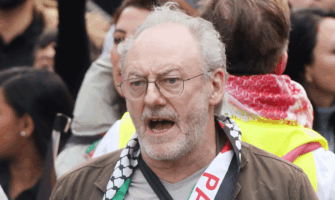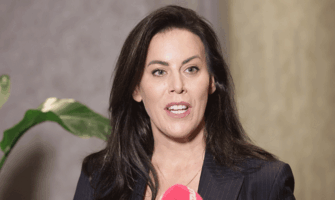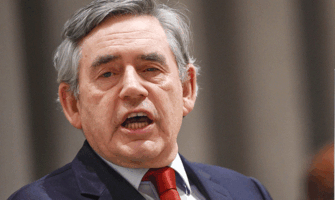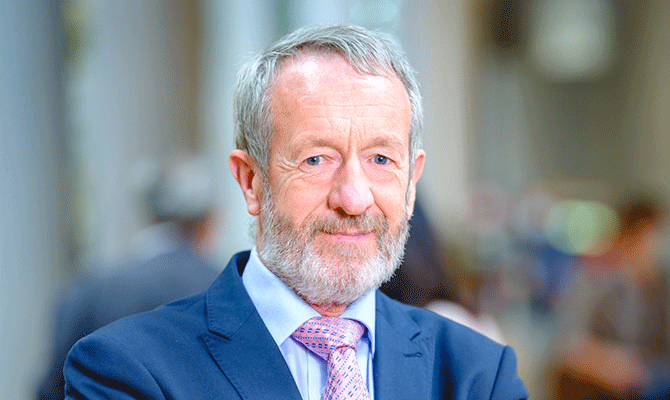
Sean Kelly
IS NEWS about the €800,000-plus EU expenses and rent on her own property that Mairead McGuinness accrued as an MEP a game changer in the battle for Fine Gael’s presidential nomination with Seán Kelly MEP? It is unlikely in the overall scheme of things but Kelly will certainly have been encouraged in his quest for the party endorsement when he became aware of this arresting financial statistic. Kelly comes over as a Dublin caricature of the cute Kerryman and McGuinness presents as more articulate and plausible. But the characteristic both candidates share is that many of their own colleagues regard them as overly ambitious and less than concerned with the party’s interests. Another prevailing view is that the nomination contest is McGuinness’s to lose.
Will there even be a contest? Anyone that headed up the GAA for several years must be a wily operator and a fixer, and Kelly boasts a list of distinctions earned for various worthy issues, such as MEP of the Year for research and innovation (twice) and an award for data protection. He is also leader of the party’s four MEPs (along with Nina Carberry, Regina Doherty and Maria Walsh).
The presidential nomination campaign will contain various elements, with one being rural versus urban culture wars as well as a chance for various leadership contenders to exploit a potential loss of the presidency itself as ammunition against the Simon Harris leadership. For Harris to lose one election (general) is barely tolerable but two in a row could be terminal.
But if Harris makes clear his preference for McGuinness, will Kelly back out before the party deadline for nominations next week?
In his own literature, Kelly claims that he has “been heavily involved in climate action… in some of the most important policy across climate change, energy investment and trade”. He cites as examples his attendance as an EU delegate at UN climate change conferences COP 21, 22, 24 and 27. Even his non-attendance at COP 28 in December 2023 came as a result of his sterling defence of climate change measures when he defied the wishes of the European People’s Party (EPP) – FG’s EU Parliament group – and voted for the Nature Restoration Law, a measure which aims to “restore to nature” at least 20% of the EU’s damaged land and seas.
This was partly or fully opposed by, amongst others, the Irish Farmers’ Association, which said it would have a negative impact on families farming on drained peatland, part of Kelly’s core electoral base.
Crucially, the full text was also opposed by the EPP and, right up until the vote, it believed it had the numbers to defeat the measure – or at least water it down. Green MEP Ciarán Cuffe, however, got to Kelly and the FG EPP members voted with all of the other Irish MEPs and against their own EU group.
The Irish FG MEPs’ vote was crucial and the measure was passed by a small handful of votes, enraging the EPP to the point of turfing poor Seán off the EU delegation to the COP 28 conference (see The Phoenix 8/3/24).
However, Kelly’s green profile had taken a battering over several years previously with his repeated support for fracking via the building of a liquified natural gas (LNG) terminal in north Kerry. The Shannon plan has long been designated an EU “project of common interest”, a status for which Kelly claims credit, and means the project can avail of extra funding from EU taxpayers and qualify for regulatory fast-tracking. Ever since, Kelly has featured as a poster boy for the terminal and fracking – an image that belies his claim to have been “heavily involved in climate action”.
EMBARRASSING U-TURN
The divide with FG’s EPP group – which is to the right of FG on many issues – was just one difference between them and it led to instructions from Harris to Kelly to repair the rift with the German-led group. This in turn led to Kelly and the other FG MEPs voting in April to support the continuation of arms sales to Israel, despite the revulsion of Irish voters to the genocide in Gaza (see The Phoenix 30/5/25).
Thus, Kelly had to do an embarrassing U-turn and, within a week or so, demand the suspension of the EU trade and co-operation agreement with Israel, making the Irish delegation – and Ireland – look more than a little foolish.
It says something about Irish politics, the GAA and Kelly that his main, repeated claim to the status of a can-do politician is his success 20 years ago in amending Rule 42, thus allowing soccer and rugby to be played in Croke Park. The unlikely campaign was successful because the GAA suits wanted it (greatly enhanced revenue); the media was fully behind this modernist agenda; and, while many GAA members were unenthusiastic, Kelly’s political experience was invaluable in pushing it through in 2005.
Most conveniently, a well-rewarded position as executive chairman of the newly founded Irish Institute of Sport became available the following year and Kelly landed the job.
This may have come as a relief at the time to another Kerryman, sports minister John O’Donoghue, as rumours were flying around that Kelly was preparing to stand for FG in Kerry South at the general election due the following year.
In fact, Kelly’s initial electoral bid was something of a debacle, with a run out in the Killarney local electoral area of 1991 that saw him come ninth out of 11 candidates. At this point he had occupied the powerful position of chair of the Kerry County Board for four years and this poor election result owed much to local FG members, who were not impressed with his parachute into party politics after several years in which he did not lift a finger to assist the Blueshirts in their darkest hour. That Kelly’s family was considered to be Fianna Fáil did not help either.
In recent months Kelly has been reminding anyone who will listen about his role in this “mould-breaking” Rule 42 achievement, which by all accounts ranks alongside Kerryman Daniel O’Connell’s Catholic emancipation.
In a recent interview he explained why he would be up for a likely vitriolic presidential campaign, saying that, before the vote to open up Croke Park to foreign sports during his time as GAA president, he asked himself: “Am I prepared to take the vitriol I am going to get and am I prepared to accept the failure? And I said, ‘yes, I am’ and then I went forward with it.”
Both Kelly and McGuinness may have to contend with vitriol over their shared enthusiasm for the ending of neutrality and a stronger military alliance with EU states, a stance they adopted in 2018. The two MEPs were joined at that time in this call to arms by the two other FG MEPs, Brian Hayes and Deirdre Clune. The group claimed that their proposal was made independently of then party leader and taoiseach Leo Varadkar. Nobody believed this.
Another position that should embarrass both would-be presidents is the voting of three Fine Gael MEPs – Kelly, Frances Fitzgerald and Maria Walsh (and back in 2019 McGuinness) against proposals to step up search-and-rescue efforts for refugees attempting to cross the Mediterranean to reach Europe.
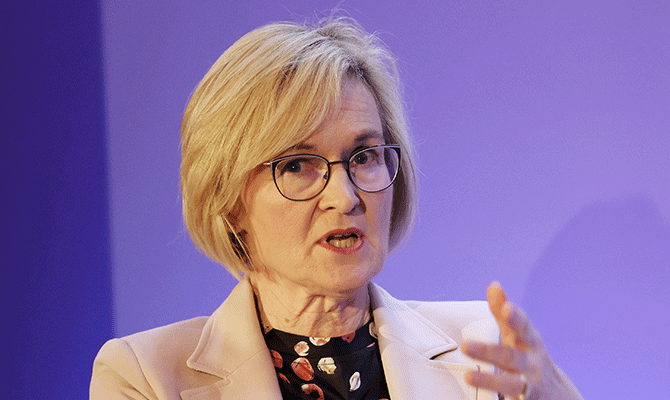
Mairead McGuinness
POLL TOPPER
An ironic perception amongst many is that McGuinness is most unpopular among FG TDs and senators because she is intensely ambitious to the exclusion of loyalty to the party. This is ironic because her rival for the presidency has also been accused of the same political crime by his comrades.
Kelly’s strengths are his can-do attitude, practically and electorally. His poll-topping performances in the last two EU elections in the South constituency were most impressive, involving high polling in counties hundreds of miles away from his Kerry base.
Most important, however, is that in towns and villages all across the Republic there are groups of people in probably the biggest organisation nationwide – the GAA – that will likely assist in his presidential campaign should he be the FG nominee. This could be crucial.
Kelly is not as articulate or polished as McGuinness and comes across as a bit ‘cuter’, which will work for each of them depending on the audience. They are both FG but he may have more appeal to FF voters given their respective personalities and credentials.
The real problem for McGuinness up until now has been that she was seriously disliked by resentful TDs who did not like what they saw as an ambition that conceded nothing to party loyalty, not even the pretence of it that so many of them deploy in the Leinster House game.
Back in 2011 the only TD that outperformed Alan Shatter in the FG unpopularity stakes was Gay Mitchell. However, when Mitchell went up against McGuinness in the vote for the party’s presidential nominee, he narrowly beat the ‘upstart’ McGuinness before going on to bomb in the presidential election.
POLITICAL SHOOT-OUT
Last week Blueshirt activists told Goldhawk that, if the nomination contest were taking place under the last administration, including the parliamentary party, McGuinness would definitely lose, despite her charm offensive in the last year or so. However, the influx of new TDs and senators means that she is now more likely to defeat Kelly or any other candidate.
McGuinness has been preparing this campaign for quite some time and appears to be well ahead of her rival in securing support from the party franchise. She has already acquired the five national executive members necessary for a mandate and is confident of winning the votes of 20 parliamentary party member also needed along with 25 councillors.
Another factor in the internal party contest is the attitude of Harris, who knows that he needs a political victory of sorts over FF to compensate for the general election defeat. He may find that Micheál Martin hoists the white flag before the election, giving him a less satisfying abstentionist victory.
Either way, if there is money needed for a strong campaign it will be more likely spent on Mairead than on Seán.
Kelly may know more than McGuinness about the party and its current mindset but one view among TDs and others is that Kelly will not show up for a political shoot-out as the feelings among party members – and especially the parliamentary party – becomes more obvious.















